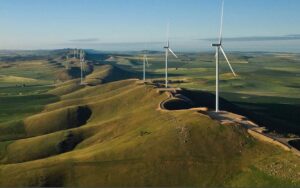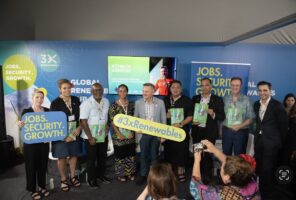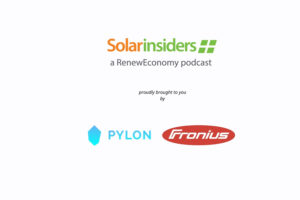Stage one of the federal government’s 2017 review of climate change policies is finally underway, with the release on Friday of a 40-page discussion paper for public consultation.
The Coalition’s climate review, announced by the Turnbull government in December 2016 and due for completion by the end of the year, was seen by some – at the time – as a positive development; an opportunity for it to get serious about its climate change policy, both current and future.
But the publication of the discussion paper – almost two months behind schedule and amid claims from the federal government’s own Climate Change Authority that it “doesn’t take the issue seriously” – does not immediately inspire confidence.
This week has seen not one, but two resignations from the CCA – the first being former Coalition energy advisor Danny Price, followed on Thursday by University of Queensland professor John Quiggin.
The departures follow that, a month ago, of Australian ethics professor Clive Hamilton, who cited his reasons for quitting the body as the Coalition’s “perverse” and “deeply dishonest” approach to climate and energy policy.
In a letter posted on his blog on Thursday, Quiggin was less diplomatic, broadly attributing his own reasons for leaving to the fact that “the (Turnbull) government is beholden to right wing anti-science activists in its own ranks and in the media.”

More specifically, though, it was the government’s “failure to respond, as legally required, to the Third Report of the Special Review undertaken by the Authority at the government’s request,” he said.
And he added: “The government’s refusal to accept the advice of its own Authority, despite wide support for that advice from business, environmental groups and the community as a whole, reflects the comprehensive failure of its policies on energy and the environment.
“The Turnbull government has chosen to treat the vital issues of climate change and energy security as an opportunity for political point-scoring and culture war rhetoric.”
Price, who was one of the key architects of the Coalition’s Direct Action climate plan, said he could no longer serve on a federal body when he did not support the direction the government was taking.
“It’s going to get a lot worse before there’s any hope of it getting better,” Price said. “Investors can’t work out what to build. Every option at the moment is uneconomic.”
Federal energy and environment minister Josh Frydenberg, who may be hoping the release of the discussion paper distracts from the CCA exodus, said of the latest resignations and critiques: “The government thanks both Danny Price and John Quiggin for their service and the government continues to engage constructively with the authority.”
The discussion paper, meanwhile, is written in a tone reflecting the Coalition’s unwavering mantra that action to slow the terrifying march of human induced climate change should not come at the expense of Australia’s economy, or anything else for that matter.

This overarching ideology is clearly illustrated in the “Electricity generation” section of the paper, which first notes the economic contribution of the electricity supply sector to Australia’s economy, before noting that it is also the nation’s largest source of emissions.
This ideology has been contradicted, however, by countless local and international studies that show acting on climate change will actually boost the global economy. Indeed, a study released just this week by the International Renewable Energy Agency has projected that investments in renewable energy and energy efficiency will add about 0.8 per cent to global gross domestic product by 2050, or $US19 trillion (£15.2 trillion).
Notably, the Turnbull government’s discussion paper lists “state and territory renewable generation targets as one of the key “Climate change policies in the electricity sector,” despite the concerted efforts of the federal government – and Frydenberg in particular – to attack and undermine state RETs.
But the release of the discussion paper is being seen as a positive by some, including the Climate Institute’s acting CEO, Olivia Kember.
“Failure to deliver policies in line with our commitment to achieve net zero emissions under the Paris Agreement has resulted in ongoing chaos in energy markets, higher electricity prices, threats to energy security and capital moving offshore,” Kember said in a statement on Friday.
“This review presents us with a chance to provide communities, businesses and investors in Australia the confidence to take appropriate steps in decarbonising our economy – steps they want to make – and ultimately move toward the achievement of net zero emissions.”
Submissions on the paper close at 5pm AEST on 5 May 2017.







